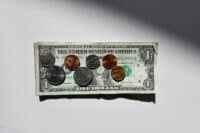Your response to money is mainly determined by your personality, like nearly everything else in life. But have you given much consideration to how you act in regard to your finances and what effect those actions have on your bottom line? Money personalities have been examined in various ways and a lot of people can relate to aspects of quite a few profiles. What’s your money personality? Read on to find out:
Spendthrift: openhanded, impulsive and fun-loving, you don’t even know what a spending plan is. You don’t let money fears hold you back from living your life. You consequently have more stuff – and more debt – than you really need.
As a spendthrift, you’re more likely to make impulse purchases and to get stuff for “when I lose ten pounds” or Christmas 2013 because you hit the stores for emotional rather than practical purposes. You can makeover your spending by taking small steps such as shopping in your closet (you’ll no doubt find cute clothes that you’ve forgotten about) or by keeping track of your spending when you pay with plastic.
If you’re a spendthrift, you can benefit from budgeting software programs such as the budget manager on Calendar Budget to help you develop better control of your impulses.
Second Guesser: you like shopping, but often suffer from buyer’s remorse. Regardless of what you do, you’ll beat yourself up afterward. The experts tell us to save, but popular culture tells us to spend, spend, spend, so we end up confused. Second guessers often make spending choices on impulse and out of frustration. They, too, can benefit from a budget planner like Calendar Budget.
Frugal Budgeter: your spending habits are comfortably middle-of-the-road. You practice sound financial budgeting, so you can enjoy your money while being careful to keep your spending in check and your saving responsible. Continue to think before you buy, check your budget to confirm that you’re on target, and stay the great course you’re on without becoming complacent.
Penny Pincher: this approach is born mainly out of fear, sometimes greediness and results in negligence. Penny pinchers purchase as cheaply as possible and sometimes don’t buy at all owing to the fear that if they spend too much they won’t have anything left. Greed makes them want as much as they can get for little or nothing. If you’re a penny pincher, make budgeting at home a priority, so you can earmark funds for spending on yourself (without any fear of repercussions).
Since the penny pincher and spendthrift both feel pain in spending, whose habits leave them the happiest? The happy spenders are the frugal budgeters, who get pleasure from bargains that they actually need. Do you have any ideas on living frugally? Drop us a line in the comments section, so we can all benefit from your nuggets of wisdom.








Leave A Comment